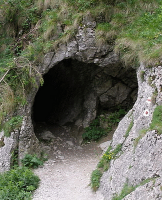Tis the season of my discontent. All thru the land the technicolor autumn has retreated before the blitzkrieg of winter. The black and white mini-version of the last ice age has occupied the hills and dales and imposed a partial house arrest on all the natives. Even "global warming" has been put on hold for four months.
At times like these I often ponder the Book of Mormon term "promised land". Could a land that is truly "promised" be held hostage for a third of the year by the polar demons? Did Mosiah have to shovel snow on the streets of Zarahemla? Did the Sidon River freeze over annually?
These questions will remain unanswered until Book of Mormon geography is fully deciphered. However, if I were designing a "land of promise" it would feature an ideal climate--not too hot--not too cold. It would receive just the right amount of rainfall. The humidity would be preset to 50%. Crops could be grown all year long. Pesky insects would be kept in bounds.
Is this ideal unrealistic? It certainly is in the northern United States. The Pilgrim fathers would have starved their first winter in New England had it not been for the generosity of the Indians. Joseph Smith Sr. had three crop failures in a row and had to move his family to New York in an attempt to survive. The inhabitants of the northern states go into "survival mode" during the winter months. No, this is not a "promised land" environment. Lehi's family probably would not have survived the first winter in New York or New England.
Is there such an environment that meets this ideal? Indeed there is! Between the Tropics of Cancer and Capricorn in Central and South America there are a number of locations with perfect climates. These occur in the upland valleys of the subtropics and tropics where one finds moderate temperatures, adequate rainfall, and pleasant air quality. Often two or three crops can be grown during a normal year. There the Lehites could have established their fragile colony and survived and flourished.
Nephi tells us of this place "And it came to pass that after we had sailed for the space of many days we did arrive at the promised land; and we went forth upon the land, and did pitch our tents; and we did call it the promised land. And it came to pass that we did begin to till the earth, and we began to plant seeds; yea, we did put all our seeds into the earth, which we had brought from the land of Jerusalem. And it came to pass that they did grow exceedingly; wherefore, we were blessed in abundance. And it came to pass that we did find upon the land of promise, as we journeyed in the wilderness, that there were beasts in the forests of every kind, both the cow and the ox, and the ass and the horse, and the goat and the wild goat, and all manner of wild animals, which were for the use of men. And we did find all manner of ore, both of gold, and of silver, and of copper." 1 Ne. 18:23-25.
No, as I look out my window on the black and white landscape, I conclude this is not the "promised land". It must be elsewhere.
